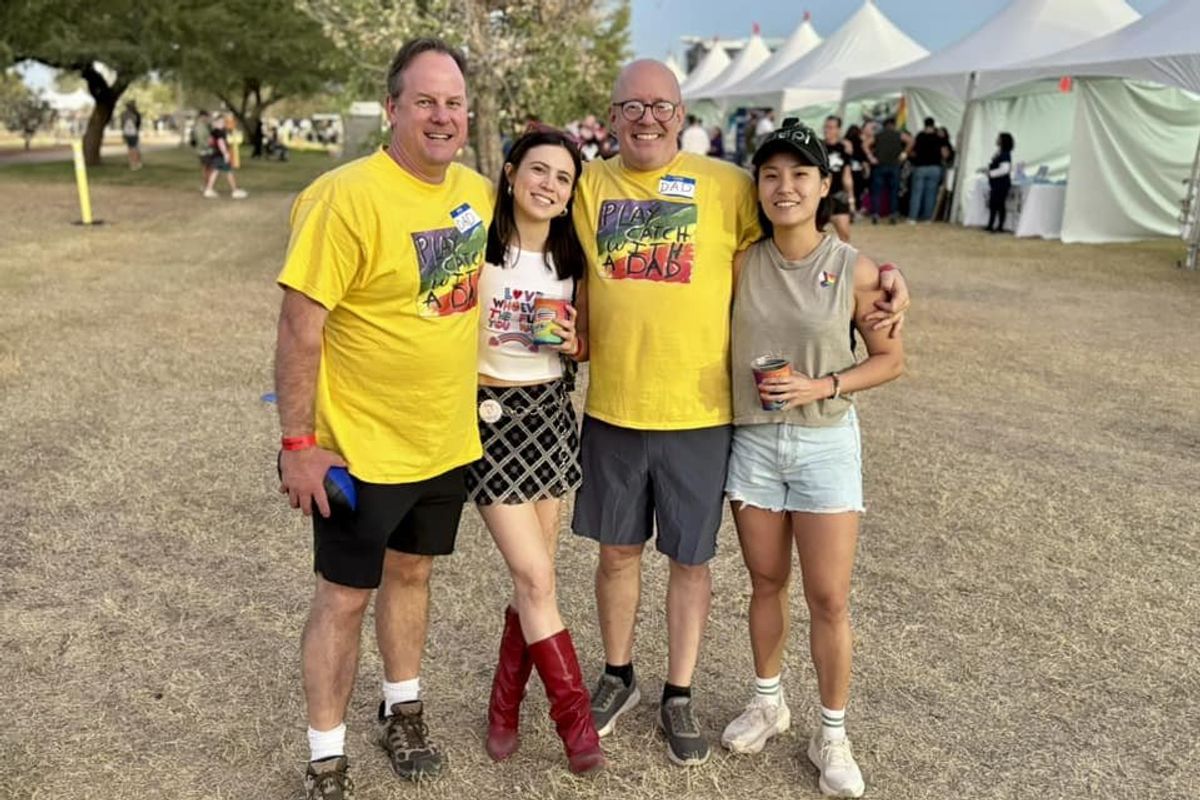One dad's wholesome game at Pride events has made him a living legend
"Can I play catch with you?'"
Adllyship comes in many forms.
So much about allyship is helping to make those who are excluded feel welcome again. And there are numerous ways to accomplish that.
For John Piermatteo, allyship came in the form of simply playing catch. Over the past five years, Piermatteo, a straight dad, has been showing up to Pride events offering to toss a ball around with members of the LGBTQ+ community.
Inspired by the “mom hugs” and “grandmother hugs” he’d seen offered at Pride events, the straight dad thought that a game of catch was a unique and personal way to offer a meaningful father figure experience to those who might have been rejected by their own families.
Piermatteo first brought his idea to life in 2019 at York Unity Fest in York, Pennsylvania, where he sat under a tree, football at the ready, next to a hand painted sign that read “Play Catch With a Dad.”
It took several trips past my sign before anyone engaged,” he recalls on his website. “I watched people go by looking at the sign out of the side of their eye, then, on the next pass, they might make eye contact with me.”
Eventually, people began walking up to Piermatteo directly to ask “Can I play catch with you?” The exchanges easily turned emotional.
“ I lost count of the number of times we both cried. It was powerful.”
Play Catch With A Dad | Facebook

Despite taking a setback during COVID, “Play Catch With a Dad” has turned into a full on movement, with Piermeeto and friend traveling nationwide to toss the ol’ pigskin with folks with upward of hundreds of people per day.
So far, they’ve visited not only York, Lancaster, Lititz and Chambersburg in Pennsylvania, but San Diego Pride and Phoenix Pride as well. In 2025, they plan to add Maryland and Chicago to the list.
Playing catch is just one of those activities that instantly evokes the image of a safe, healthy, loving father-child relationship. And considering that at least one study has shown that upwards of 70% of lesbian, gay, and bisexual youth experience some degree of parental rejection of their sexual identity, it’s easy to see how this innocent offering likely fills a yearning for so many.
Piermatteo’s contribution, and the massively positive response to it, shows that where allyship does take action, it’s often the simplest acts of compassion that make the most meaningful impact. Yes, we need to fight for policies that protect LGBTQ individuals from discrimination, but sometimes…playing catch really is enough to say “you are welcome, just as you are.”
If you’d like to donate to Play Catch With Dad, or even set up a Play Catch With a Dad event in your area, you can find more information here.

